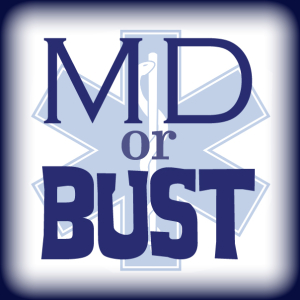A torrential thunderstorm forced nearly the entire homeless population of Tampa Heights out from under their tents and awnings in favor of the more generous cover of a highway overpass. It was the closest Tampa had come to a publicly funded homeless shelter.
“And I was running, you know, just — getting out — just goin’, man.” An older veteran named Detroit closed his eyes and reminisced. He twisted his trunk — “swoosh, swish,” running from the sound of gunfire in his memory. “And then, BAM!” He clapped his hands and the sound reverberated through the rain and interstate traffic. He outlined a spot on his jeans where a bullet tore through his thigh a quarter-century ago. Detroit had to spend several months in a VA hospital recovering from the wound. He had incurred the injury not through combat, but as a direct consequence of his homelessness; he suffered from being in “the wrong place at the wrong time.”
Around when Detroit was relearning to walk, Dr. Jim Withers was taking his first steps through Pittsburgh. Soon after arriving, he launched Operation Safety Net: a street medicine program and approach to health care that has inspired hundreds of medical students and physicians across the country. Today, there are roughly 40 street medicine programs all over the globe, including the one in Tampa.
William, a wiry man in a stained green sweater, was another member of the homeless community finding shelter under the highway. He was drenched from the rain and had no medical concerns, only romantic ones. “I’ve had some relationship problems,” he said sheepishly. I contemplated changing the subject — I felt even less qualified to weigh in on relationship issues than on medical issues — but Will was persistent. To my surprise, he pointed to a woman sitting on the curb a few yards away. “She really helped me out, man, when I got into town, getting clothes and shit. And I wanted to try and work it out with her, but she just wasn’t interested … But I really like her…” This wasn’t the story of some past relationship gone sour—this was an ongoing, active situation that started on the streets. I waited to hear more, but before Will could continue, Detroit approached and asked me to take a look at his ankle.
Will hovered nearby, patiently waiting as Detroit hobbled to the curb and gingerly removed his sneaker. A large callus had formed over his right Achilles tendon, the product of a nasty cut and poorly fitting shoes. I fumbled for my penlight; Detroit produced a pocket flashlight of his own, peering intently as I smeared iodine on the exposed ankle. In hushed tones, he delved into the story about the gunshot wound he suffered on the streets of the city that became his namesake.
“I really wish I had a better pair of shoes for you,” I said, looking up from the foot. Detroit chuckled at my suggestion. A bandage, a fresh pair of socks, a fist bump, and he limped back into the rain.
A police cruiser rolled through the underpass. “Fuckin’ PD,” Will said. “They probably want to harass people, always fucking telling folks to move along.”
“Move along where?”
Will laughed. “Fuck, man, they don’t give a shit.”
Cities across the state of Florida have become notorious for policies banning public eating, sleeping and displays of personal property. Ninety-year-old chef Arnold Abbott made headlines when he was arrested in Fort Lauderdale for serving dinner to homeless individuals. To its credit, Tampa does not enforce anti-homeless ordinances with quite as much zeal, but the anti-homeless attitudes stubbornly remain.
As the downpour eased, the scores of people under the overpass began to disperse.
“You guys have to do essays, papers, shit like that?” Will asked. “Write about this. Write about us.”
Author’s note: All names are pseudonyms.
Numerous studies have documented that medical students lose empathy during clinical years, becoming jaded and pessimistic. This has been linked not only to diminished enjoyment of our work, but also to worse patient outcomes. My goal is to sustain the humanistic values that drive so many of us to medicine, so that, instead of being quelled by cynicism, our idealism can be refined by wisdom.






